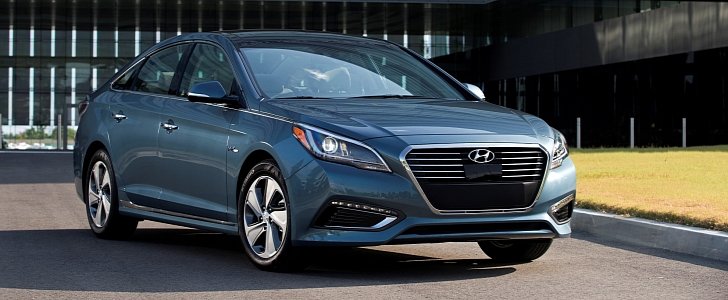South Korea’s largest automaker, Hyundai Motor Company, is facing a setback in China because of its battery suppliers.
Hyundai’ suppliers of batteries for electric vehicles and hybrid cars, Samsung SDI and LG Chem, have not received the necessary certifications from the country’s organization in charge of the process. Because of this, the launch of the Sonata PHEV, and the K5 PHEV might be postponed.
In other words, both LG Chem and Samsung SDI will have to reapply for the certification process of their batteries in China. According to Korea Herald, the two suppliers failed to win certifications in June, and have yet to resubmit the applications. The delay could become significant because of this problem.
If Hyundai Motor Company’s new models do not get certification for their batteries, their plug-in hybrid vehicles will not be eligible for government subsidies. Those subsidies are a vital part of stimulating the sale of electric and plug-in hybrid vehicles, and they usually make the models more affordable to own and register, and the automaker also is eligible for subsidies.
China is the world’s largest car market, so any delay in launching a model there will affect the overall sales figures for the automaker that suffer this blow.
According to Choi Woong-Chul, a professor at the Kookmin University’s College of automotive engineering, the delay could become worse if the Chinese government decides only to recognize the batteries made after the certifications.
On the other hand, Hyundai focuses its eco-friendly range on the markets in Europe and the United States of America, so the delay in China might not be as harmful to the automaker as initially expected.
However, even if Hyundai and Kia would not be affected by the delay in China caused by its battery suppliers, the South Korean group would still have an image deficit because it does not sell any electric or hybrid cars in China, even though it has developed them for other markets.
In other words, both LG Chem and Samsung SDI will have to reapply for the certification process of their batteries in China. According to Korea Herald, the two suppliers failed to win certifications in June, and have yet to resubmit the applications. The delay could become significant because of this problem.
If Hyundai Motor Company’s new models do not get certification for their batteries, their plug-in hybrid vehicles will not be eligible for government subsidies. Those subsidies are a vital part of stimulating the sale of electric and plug-in hybrid vehicles, and they usually make the models more affordable to own and register, and the automaker also is eligible for subsidies.
China is the world’s largest car market, so any delay in launching a model there will affect the overall sales figures for the automaker that suffer this blow.
According to Choi Woong-Chul, a professor at the Kookmin University’s College of automotive engineering, the delay could become worse if the Chinese government decides only to recognize the batteries made after the certifications.
On the other hand, Hyundai focuses its eco-friendly range on the markets in Europe and the United States of America, so the delay in China might not be as harmful to the automaker as initially expected.
However, even if Hyundai and Kia would not be affected by the delay in China caused by its battery suppliers, the South Korean group would still have an image deficit because it does not sell any electric or hybrid cars in China, even though it has developed them for other markets.


















